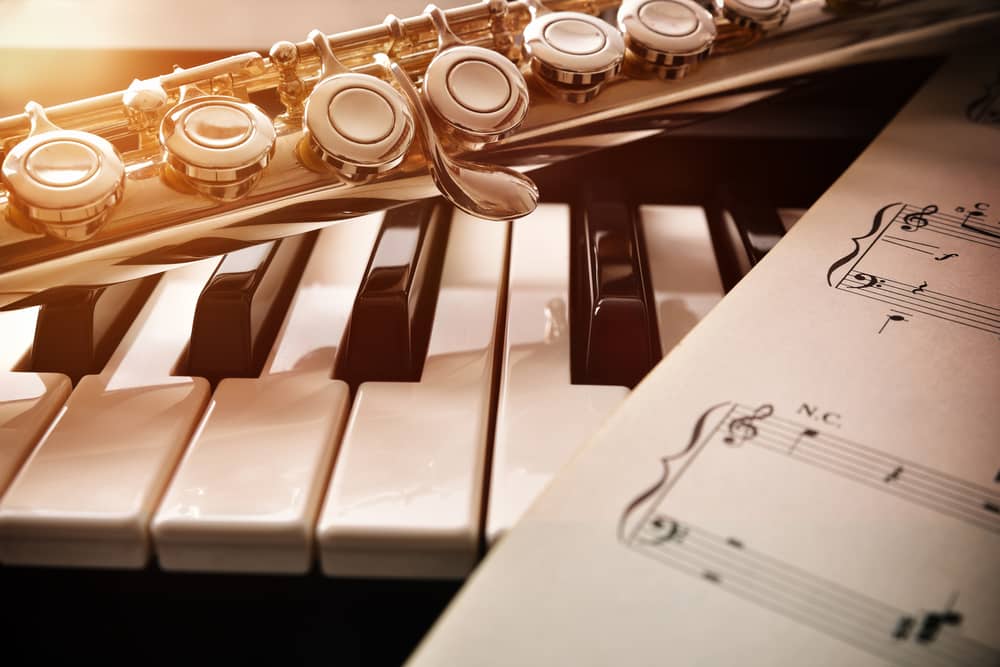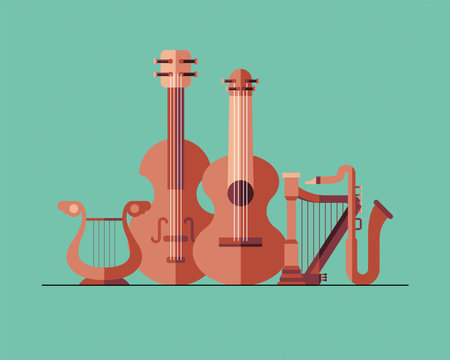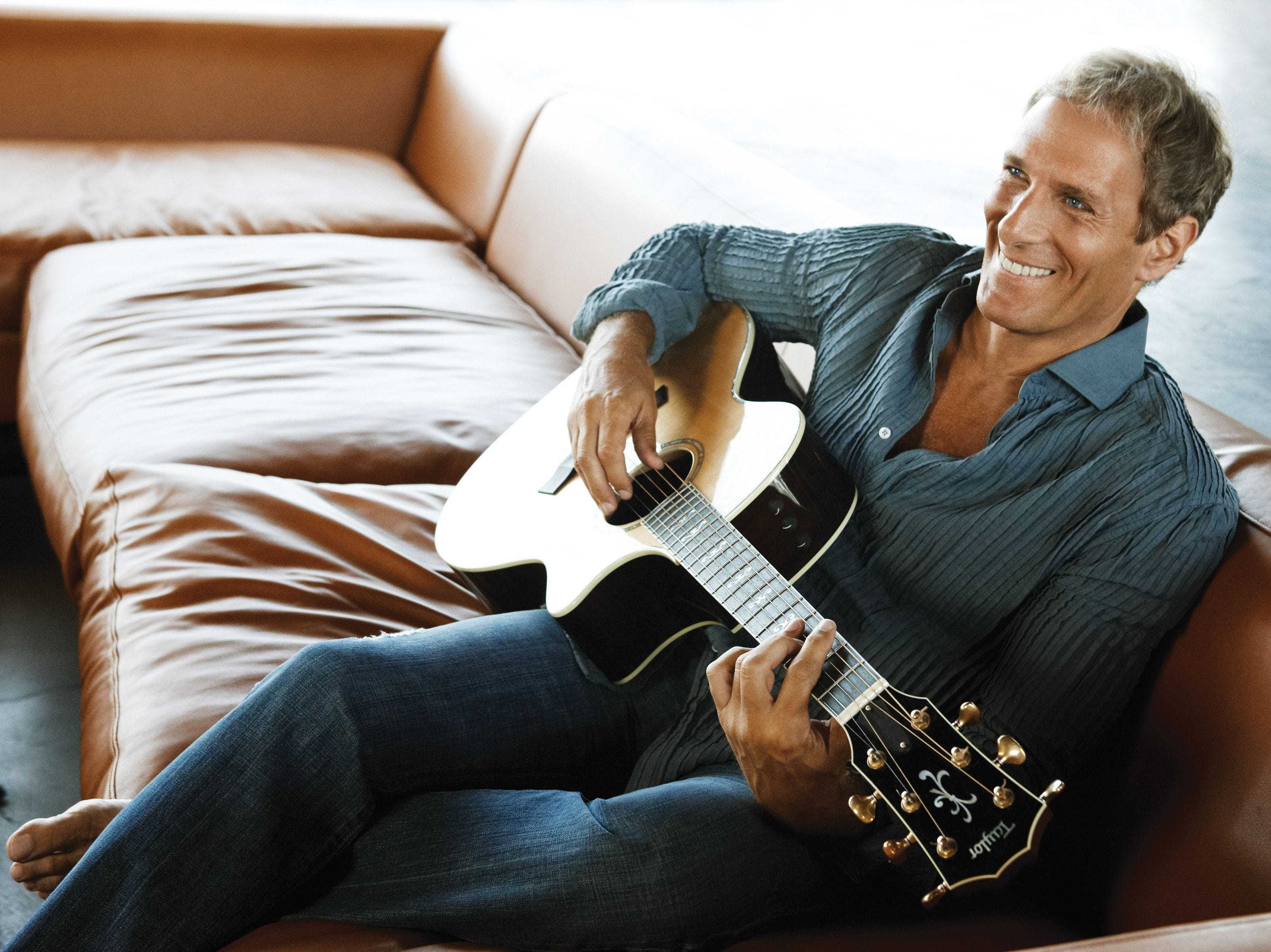Introduction
Classical music, as a genre, has a long and rich history that spans several centuries. It originated in Western Europe in the 9th or 10th century and has continued to evolve over time. The term “classical music” is often used to refer to a specific period in the history of Western music, which roughly encompasses the years from the late 16th century to the early 19th century. This period is sometimes referred to as the “common practice period.”
Classical music is characterized by its complex compositions, use of notation, and adherence to established forms and structures, such as sonata-allegro form and symphonies. Some well-known composers from the classical music era include Ludwig van Beethoven, Wolfgang Amadeus Mozart, and Johann Sebastian Bach.

Is classical music the oldest genre?
Classical music is one of the oldest and longest-lived musical genres, it will never go out of style, and you will never stop listening to the most famous pieces by composers such as Mozart, Beethoven, or Chopin.
Classical music is one of the oldest surviving genres of Western music, but it is not the absolute oldest. Music, in various forms, has been a part of human culture for thousands of years. Before classical music emerged, there were other forms of music, including traditional folk music, religious music, and various forms of early vocal and instrumental music.
For example, early forms of music in ancient civilizations like Egypt, Mesopotamia, and Greece existed long before the development of what we now consider classical music. These ancient musical traditions included instruments like lyres, flutes, and drums.
Additionally, non-Western cultures around the world have their own ancient musical traditions that predate classical music. These traditions have unique instruments, scales, and styles that are distinct from classical music.
So, while classical music has a rich history dating back several centuries, it is not the absolute oldest genre of music. Music, in various forms, has been an integral part of human culture for millennia, and its origins are deeply rooted in the history of human civilization.
What are the 7 eras of classical music?
These eras and styles include Medieval, Renaissance, Baroque, Classical, Romantic, Modernist, and Postmodernist. The 20th and 21st centuries are not musical eras in themselves, but are calendar periods that do not relate individually to musical history.
The classification of classical music into specific eras or periods can vary depending on the source or music historian, but a common framework includes the following seven eras:
Medieval (c. 500-1400): This era covers the early development of Western classical music, including Gregorian chant and early sacred music. Composers from this era include Hildegard of Bingen and Guillaume de Machaut.
Renaissance (c. 1400-1600): The Renaissance era saw the flourishing of polyphonic music and the use of musical notation. Prominent composers include Josquin des Prez and Palestrina.
Baroque (c. 1600-1750): The Baroque era introduced many musical forms and innovations, such as the opera, concerto, and the use of the well-tempered tuning system. Notable composers include Johann Sebastian Bach, George Frideric Handel, and Antonio Vivaldi.
Classical (c. 1750-1820): This era brought about the development of the symphony, sonata-allegro form, and the string quartet. Prominent composers include Wolfgang Amadeus Mozart, Ludwig van Beethoven, and Franz Joseph Haydn.
Romantic (c. 1820-1910): The Romantic era was characterized by emotional expression, nationalism, and large-scale orchestral compositions. Composers from this period include Johannes Brahms, Pyotr Ilyich Tchaikovsky, and Richard Wagner.
20th Century (c. 1900-2000): This era saw a wide range of experimentation in classical music, including atonality, impressionism, and the use of electronic instruments. Notable composers include Igor Stravinsky, Arnold Schoenberg, and Claude Debussy.
Contemporary (c. 2000-present): The contemporary era encompasses music composed from the late 20th century to the present day. It is characterized by diverse styles and the blending of traditional and modern elements.
Who is the father of classical music?
Johann Sebastian Bach (1685-1750) is unquestionably the most revered figure in the entire history of western classical music, having been called “The Father of Music” on several occasions, and often being referenced to by other composers, like Frédéric Chopin and Wolfgang Amadeus Mozart, as a key inspiration.
The title “father of classical music” is not typically attributed to a single individual because classical music, as a genre and tradition, has developed over many centuries with the contributions of numerous composers, musicians, and theorists. However, if you’re looking for a prominent figure who made significant contributions to the development of Western classical music, Johann Sebastian Bach is often regarded as one of the most influential and important composers in the history of classical music.
Bach was a German composer and musician of the Baroque era (1685-1750), and his compositions are highly regarded for their complexity, innovation, and technical mastery. He made significant contributions to various musical forms, including fugues, choral works, and keyboard music. While he may not be the sole “father” of classical music, he is certainly considered one of the most significant figures in its history.
What music came after classical?
The Classical era was dominated by its two greatest composers, Haydn and Mozart. In the last years of the 18th century came Beethoven, who split apart the Classical style at the seams, marking the dawn of the Romantic era in music.
The Romantic era, which roughly spans from the early 19th century to the early 20th century, followed the Classical period and brought significant changes in musical style and expression.
Key characteristics of the Romantic era in music include:
Emotion and Individualism: Romantic composers focused on expressing deep emotions and personal feelings in their music. They explored themes of love, nature, and the human condition, often reflecting their own personal experiences and struggles.
Expanded Orchestra: Orchestras grew in size and power during the Romantic era, with the inclusion of new instruments and the development of symphonic orchestration techniques. This allowed for more dramatic and expressive compositions.
Program Music: Composers began to write programmatic music, which told a story or depicted a specific scene, often with descriptive titles. Examples include Hector Berlioz’s “Symphonie fantastique” and Richard Strauss’s “Also sprach Zarathustra.”
Nationalism: Composers incorporated elements of their own national folk music and culture into their compositions, leading to the emergence of nationalistic styles in various countries.
Virtuosic Soloists: The Romantic era saw a rise in virtuoso performers and soloists, particularly in piano and violin music. Composers wrote challenging and expressive solo works, such as Liszt’s piano compositions and Paganini’s violin pieces.
Chromatic Harmony: Composers explored more complex and chromatic harmonic progressions, often creating rich and lush harmonies in their compositions.
Is classical music still relevant today?
Absolutely. Classical music continues to be performed and appreciated around the world. It has left a lasting legacy and influence on modern music and continues to be a source of inspiration for contemporary composers and performers.
Yes, classical music is still very much relevant today. While it may not have the same level of mainstream popularity as some other genres of music, it continues to have a significant impact and an enduring presence in the world of music and culture. Here are several reasons why classical music remains relevant:
Historical Significance: Classical music represents a rich and influential tradition that has shaped the course of music history. It provides a foundation for understanding the development of musical forms, structures, and techniques.
Cultural Heritage: Classical music is an essential part of the cultural heritage of many societies. It is performed and celebrated in various cultural and educational institutions worldwide.
Educational Value: Classical music is often used in education to teach musical concepts and develop an appreciation for music. It is an important part of music education at all levels, from elementary school to conservatories and universities.
Influence on Modern Music: Classical music has influenced and inspired various genres of music, including film music, contemporary classical, and even popular music. Composers and musicians from other genres often draw from classical traditions in their work.
Live Performances: Classical music continues to be performed in concert halls, opera houses, and chamber music venues around the world. These live performances offer a unique and immersive musical experience.
Contemporary Compositions: Classical music is not limited to historical works. Contemporary composers continue to write new classical music, often incorporating modern elements and reflecting the evolving cultural landscape.
Recording Industry: Classical music recordings are readily available, making it accessible to a broad audience. Streaming services and digital platforms have made classical music more accessible than ever before.
Cultural Enrichment: Many people find emotional and intellectual enrichment in classical music. Its depth, complexity, and emotional expressiveness continue to resonate with listeners of all ages.
Global Community: Classical music has a global community of enthusiasts, performers, and scholars who work to preserve its legacy and promote its appreciation.
How can I explore classical music?
To explore classical music, you can start by listening to famous compositions, attending classical concerts, and studying the works of prominent composers. There are also numerous resources and online platforms where you can access classical music recordings and educational materials.
Exploring classical music can be a rewarding and enriching experience. Whether you’re new to the genre or already have an interest, here are some steps to help you explore classical music:
Listen Actively: Start by listening to classical music regularly. You can explore different composers, time periods, and styles. Try to actively listen to the music, paying attention to melodies, harmonies, and the emotions conveyed. Make a playlist of classical pieces that you enjoy.
Attend Live Performances: If possible, attend live classical music concerts, whether at a local orchestra, chamber music group, or in an opera house. The experience of hearing classical music performed live is often powerful and memorable.
Study the History: Learning about the history of classical music and its different eras can provide context and a deeper understanding of the music. You can read books, watch documentaries, or take online courses on classical music history.
Discover Different Instruments: Classical music encompasses a wide range of instruments. Explore the sounds of orchestral instruments like the piano, violin, cello, and brass and woodwind instruments. Learn about their roles in classical compositions.
Learn About Composers: Study the lives and works of prominent classical composers. Understand their contributions to the genre and their unique styles. Composers like Beethoven, Mozart, Bach, and Tchaikovsky have extensive bodies of work worth exploring.
Explore Different Genres: Classical music includes various genres like symphonies, concertos, operas, chamber music, and choral compositions. Explore these different forms to find what resonates with you the most.
Online Resources: Utilize online resources such as streaming platforms, YouTube, and classical music websites to access a vast library of classical music recordings. You can also find playlists, educational videos, and articles that introduce classical music.
Take Music Lessons: If you’re interested in learning to play classical music, consider taking music lessons. Whether it’s piano, violin, flute, or any other instrument, learning to play classical pieces can deepen your appreciation of the genre.
Join a Music Community: Engage with others who share your interest in classical music. Join local music clubs, forums, or online communities to discuss and discover new music with fellow enthusiasts.
Read Program Notes: When attending a classical concert or listening to a recording, read the program notes. These notes often provide background information about the music and the composer, enhancing your understanding.
Explore Contemporary Classical: Don’t limit your exploration to historical classical music. Contemporary classical composers continue to create new and innovative works. Listen to modern classical compositions and stay informed about current trends in the genre.
Enjoy Cross-Genre Collaborations: Classical music often collaborates with other genres, such as pop, jazz, and world music. Explore crossover works that combine classical elements with different musical styles.

Conclusion
classical music is a genre with deep roots in Western musical history, dating back to the medieval and Renaissance periods. While the term “classical music” often refers to the common practice period from the late 16th to the early 19th century, it has continued to evolve and influence the world of music. This genre has given us timeless compositions and iconic composers, and it remains relevant and cherished today. Whether you are a long-time enthusiast or a newcomer, classical music offers a wealth of beauty, complexity, and artistic expression to explore and enjoy. Its rich history and enduring appeal make it a valuable and integral part of our cultural heritage.







Leave a comment